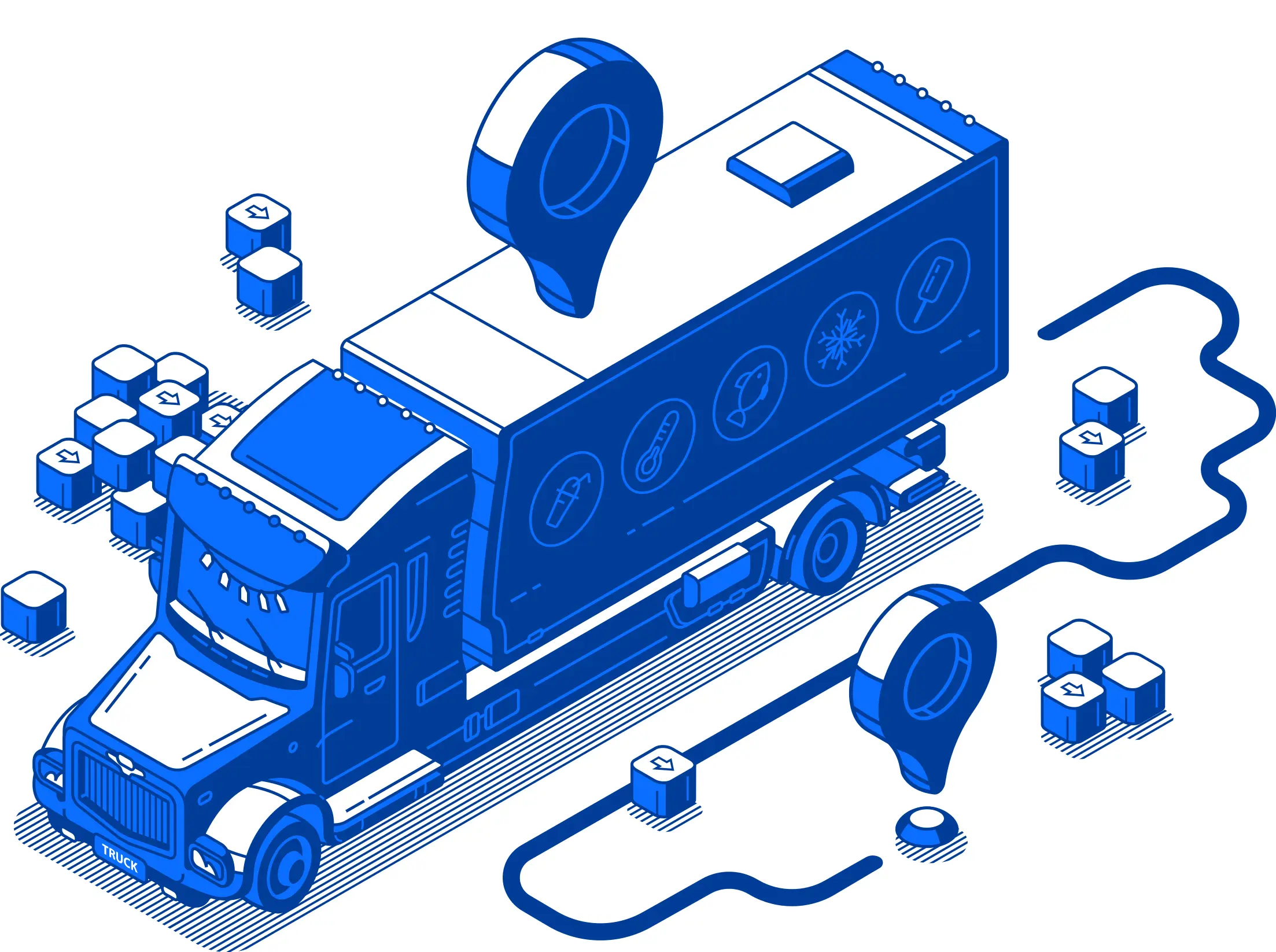The Bureau of Transportation Statistics reports that the U.S. has approximately 1 million self-employed transportation workers. Truck drivers (heavy and tractor-trailer) account for close to 165,000 self-employed workers. Light trucks and delivery services account for 88,300 of these independent truckers.
As an independent trucker, a strong cash flow is essential for your business to thrive. The topic of cash flow prompts us to examine the impact of dispatch services and freight factoring on your profits more closely.
Independent truckers have two options: self-dispatching or dispatch servicing. One ensures you get the maximum amount of load revenue. The other takes some of the weight off your shoulders, but you lose money on each load. A strong cash flow involves making informed decisions for your trucking company.
The Breakdown of Cash Flow for Independent Truckers
Cash flow is the amount of revenue you generate minus your expenses. Whatever is left is your net profit and money that’s in your trucking business’s cash flow. Here’s a basic scenario detailing the calculation of cash flow.
You agree to drive a load across the country (New York City to Los Angeles) for $2 per mile. It’s a one-way trip of 2,775 miles. When the load is done, you’ve made $5,550.
You need to consider your expenses now. Gas prices vary as you travel across the nation. While it’s about $3.13 per gallon in New York, it’s much higher at $4.69 in California. You must be strategic when it comes to fueling. A gas discount helps a lot.
A loaded semi-truck and trailer gets about 7 miles to the gallon. Using the national average of $3.08 per gallon, you’d use about 386.5 gallons of gas. Your fuel costs average $1,190 for the trip out.
You also have the return trip to New York, so you want to make sure you have a full load for the return. Avoid deadhead miles. Plus, you have tolls to pay along the way.
TollGuru estimates there are seven toll booths on the most direct route. The Kansas Turnpike charges a cashless toll per toll zone, with costs ranging from $23.38 per zone for an image-based toll to $11.69 for a transponder-based toll.
You also need to account for the number of days you’re away from home and need meals. What happens if your truck or trailer needs repairs? How much does your insurance cost for each day you’re on the road?
Each of these expenses reduces your revenue, which impacts your cash flow. When you’re self-dispatching, you retain as much of your profit as possible, but it can come at a cost.
Understanding the Impact of Dispatch Services on a Trucker’s Cash Flow
While independent truckers can do all the load-finding and administrative work on their own, they also have the choice of hiring a dispatch service. Dispatch services are third-party firms that step in, find loads, negotiate the highest possible per-mile rates, and handle the necessary paperwork, including bills of lading, permits, and other essential documents required for the trip.
In exchange for the work a dispatcher does, the dispatching service collects a commission for each job it secures on your behalf. In the U.S., commissions vary, but the average commission range is 5% to 10%.
Go back to that $5,550 job hauling a load from New York City to Los Angeles. A dispatcher might take $555 of that as a commission. In return, you have less work to do. You have to decide if the service you’re getting is worth it.
Consider the Pros and Cons of Each Option
Whether you decide to dispatch for yourself or hire a third party, you have to weigh the pros and cons carefully. Cost shouldn’t be your only factor.
- Professional dispatchers have the expertise needed to secure the highest possible rates. That per-mile rate could be more than you could dream of negotiating.
- Dispatchers are constantly working to find more work, which provides you with steady work.
- Scam artists operate a handful of third-party dispatching companies. You need to carefully vet the company you’re considering.
- Self-dispatching puts you at risk of deadhead miles, especially if you’re new and haven’t established a list of steady contacts.
- Independent truckers risk burnout if they try to do it all. They also risk making a mistake when it comes to safety and compliance requirements. This can lead to costly fines or business losses.
- A dispatcher controls the loads you haul and the routes you take. You end up with less control in that part of your business.
- Independent truckers focus on the roads and getting from point A to point B quickly and safely.
- Dispatchers shield you from interactions with brokers and shippers. If you have an unhappy broker or shipper, you don’t have to drop everything to respond.
Which Model Works Best in Trucking?
Which is best? Both work well, but you need to decide what fits your lifestyle. Ask yourself these questions when you’re making a decision.
- Do you have enough time to handle complex negotiations regarding per-mile rate, ensure paperwork is complete, and plan efficient routes?
- Are you new to trucking or experienced? Would you benefit from partnering with someone with industry experience?
- Do you want to spend days off finding more clients?
- Are you willing to lose some money to make your life easier? Is a 5% to 10% commission or a much lower freight factoring fee better for your cash flow?
Self-dispatching ensures you get 100% of your load revenue. You’re not losing a possible 5 to 10% commission to a dispatcher. That’s a significant perk, but you need to ensure you have the time to complete the dispatching work efficiently and accurately. Ultimately, the amount of extra time available for the administrative work is your deciding factor.
That’s where freight factoring comes in. Saint John Capital takes over invoicing and managing payment collections. You have more time to devote to scheduling and arranging deliveries, planning routes, and ensuring you have the proper permits and licensing. You have time to run your business.
Freight factoring pays you immediately when you pick up or deliver a load. You get the money you’re owed, minus a small fee that’s substantially less than the commission a dispatcher demands. That’s just one of the benefits of freight factoring. You also enjoy:
- Access to expert guidance from specialists in trucking
- Fuel discounts on gas or diesel
- Offers like low-interest business lines of credit to help grow your business
- Protection against clients who file bankruptcy or shut down without notice
- TMS integration for easier bookkeeping, Click & Pay API, and account creation for new clients
Take control of your trucking business with the guidance of experts. Saint John Capital is here to help you get paid quickly. Contact us and get started free today.











